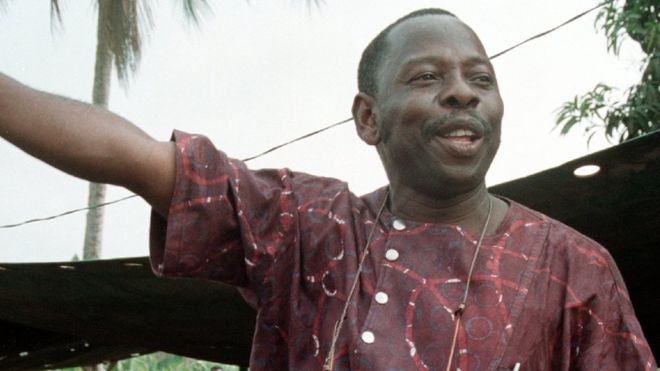 The widows of four men executed by Nigeria's military regime in 1995 are suing oil giant Shell for alleged complicity in a military crackdown.
The widows of four men executed by Nigeria's military regime in 1995 are suing oil giant Shell for alleged complicity in a military crackdown.
The civil case, filed in The Hague in the Netherlands, argues that the company provided support to the army, which ultimately led to the executions.
Shell has repeatedly denied the claims.
Ken Saro-Wiwa was the best known of the nine men executed. He led protests against the environmental damage caused by oil production in the Niger Delta.
The latest case against Royal Dutch Shell has been filed by four of the wives of the men - political activists known as the Ogoni nine - and is supported by Amnesty International.
The women are seeking an apology and unspecified compensation
'Regret'
In response Shell - the largest oil producer in Nigeria - said that it "did not collude with the authorities to suppress community unrest and in no way encouraged or advocated any act of violence in Nigeria."
"The executions of Ken Saro-Wiwa and his fellow Ogonis in 1995 were tragic events that were carried out by the military government in power at the time. We were shocked and saddened when we heard the news of the executions.
"The Shell Petroleum Development Company of Nigeria Limited appealed to the Nigerian government to grant clemency. To our deep regret, that appeal, and the appeals made by many others within and outside Nigeria, went unheard.
The hanging of the men provoked an international outcry, and remains one of the most sensitive cases in Nigeria.
The oil giant has faced lawsuits in various countries relating to the executions.
Eight years ago, it agreed an out-of-court settlement in the US to pay more than $15 millon to a group of the men's relatives.
Shell has also faced lawsuits over oil spills and environmental damage in the Delta region.
No comments:
Post a Comment